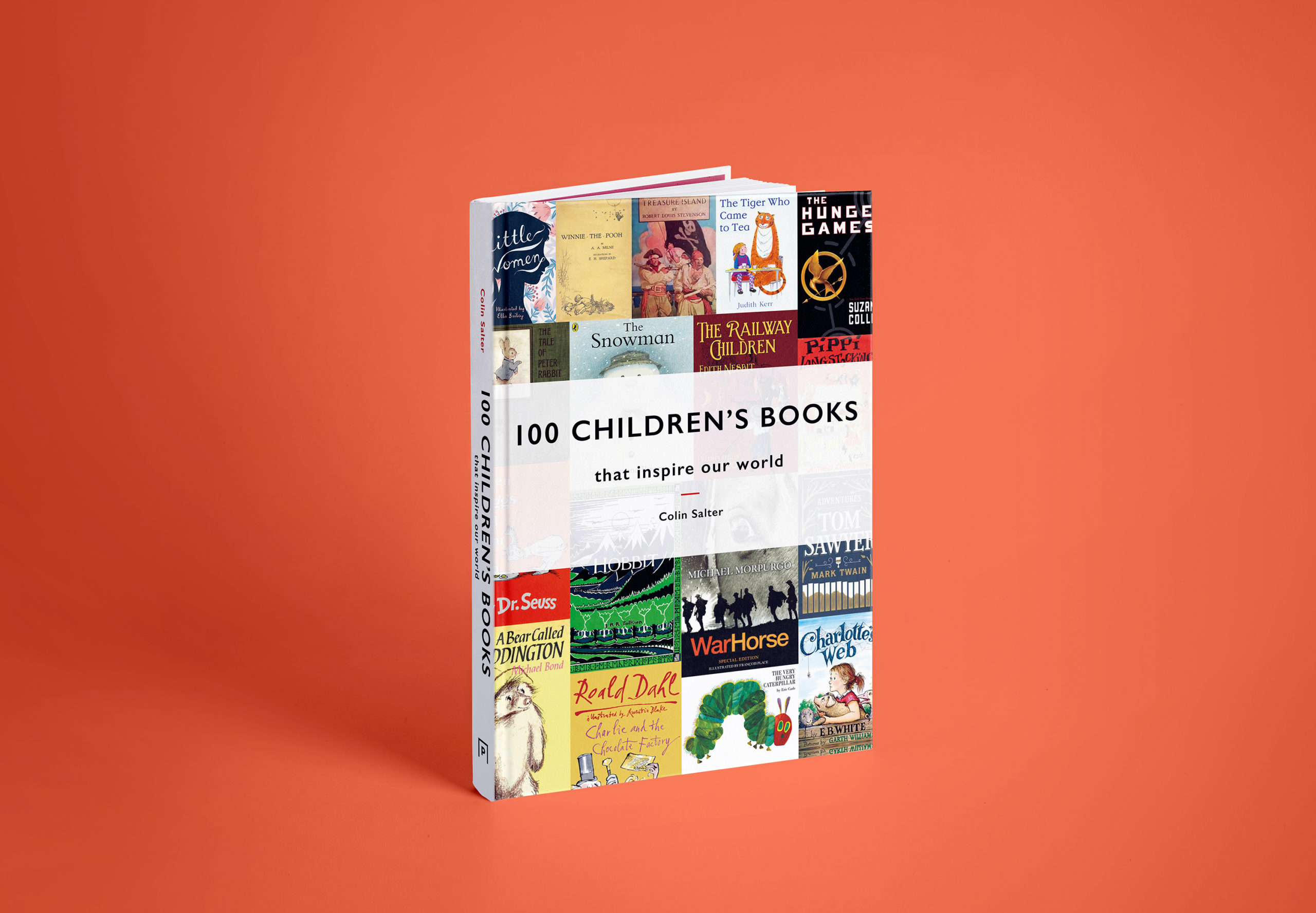In this worrying time of imposed isolation it’s never been better than to take refuge in children’s fiction. With very few exceptions, wrongs are righted, bullies get their come-uppances and the world is a reassuringly better place when the final page is turned. Based on his recently published 100 Children’s Books That Inspire Our World, here’s Colin Salter‘s take on the rapidly changing and expanding canon of children’s literature and the burdens and responsibilities weighing on every editor (including himself!) who has ever attempted to narrow it down to a hundred.
After finishing off 100 Books That Changed the World back in 2017, I was lucky to be asked to write 100 Children’s Books That Inspire Our World and I gleefully re-visited the genre that I’d left behind in the 1960s.
So how did we choose 100 Children’s Books That Inspire Our World? It wasn’t an easy or swift process and thanks (or blame) must go to the staff at Pavilion Books who contributed lists of their early reading. A favourite question of mine to friends and family for many months would be: “What are your most-loved children’s books?” The question was asked in the hope and expectation they would reinforce the strong core of titles we had already gathered, but occasionally there would be a surprise when someone mentioned an overlooked classic. My editor woke in a cold sweat one night muttering “Peter Pan!” and the list had to be jostled to accommodate.
Personal choice had nothing to do with it – of my own favourite 10, only four authors got into the book.
E. Nesbit – Five Children and It
Herge – Tintin in Tibet
Robert Louis Stevenson – Treasure Island
Ludwig Bemelmans – Madeleine
Alan Garner – Elidor or Red Shift
Anthony Buckeridge – the Jennings books
Frank Tashlin – The Bear That Wasn’t
Roland Pertwee – The Islanders
Rene Guillot – The Sea Rover
T.H. White – The One and Future King
The demographic of the contributor often showed in the titles chosen – no-one over 30 chose Hunger Games, no-one without children chose Little Mole, and no-one under 30 chose Just William. Frida Green, Pavilion Books’ Swedish craft publicist, chose Pippi Longstocking (and had visited the Pippi theme park in Sweden) and Finn Family Moomintroll, while David Graham, Pavilion’s CEO, was keen to see Goodnight Moon (1947) included.
Goodnight Moon was written by the larger-than-life character Margaret Wise Brown, who saw no contradiction in writing about runaway bunnies during the week, then going out at weekends and hunting hares with a beagle pack. Similarly unconventional, Antoine de Saint-Exupéry, who wrote Le Petit Prince, was a skilled pilot and would often read books while he was flying – sometimes he would even circle an airfield if he hadn’t finished a book.
Each author gets a single entry with their stand-out book, and then mentions of their other beloved works. With authors such as Roald Dahl and Enid Blyton there was quite an inventory to choose from, with authors such as Mark Haddon and Eva Ibbotson, the choice was less difficult. (The Curious Incident of the Dog in the Night Time and Journey to the River Sea).
You may completely approve of fifty of the authors/titles in the collection, you may profoundly disapprove of the rest. Every one of them is someone’s favourite, and all of them have had a significant impact on the books we give our children to read today. If there are stories here that you know and love, hooray. If there are titles or authors you’ve never heard of, then why not give them a go? You’re never too old.
Colin Salter, April 2020
MORE ABOUT THE BOOK
An amazing collection of the most beloved, original, inspiring, hysterical, heart-warming, compelling, rude and downright scary books that have enchanted children the world over.
In 100 Children’s Books That Inspired Our World, author Colin Salter brings together an exceptional collection of truly groundbreaking children’s books – from Mark Twain’s Tom Sawyer to the graphic novels of Dr. Seuss. All the classic children’s authors are represented with one stand-out book, plus mentions for their best-known works. Ordered chronologically, the book features favourite children’s books ranging from Victorian classics to modern day bestsellers.
ABOUT THE AUTHOR
Colin Salter is the co-author of Everything You Need to Know About Inventions. He is a history and science writer with a fascination for how things work, and how they used to work. He has written about everything, including the private lives of marine gastropods. His contributions to Chambers’ Biographical Dictionary include the entries for 500 living scientists.





